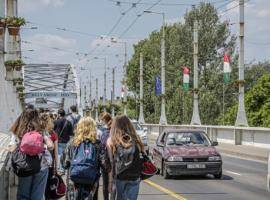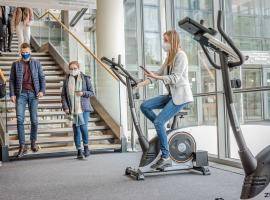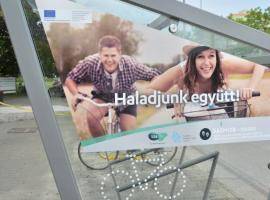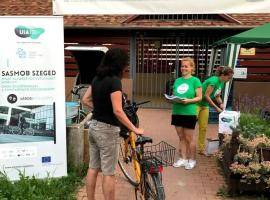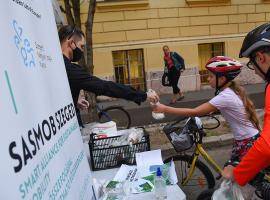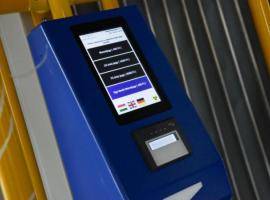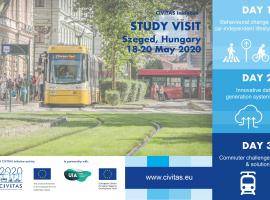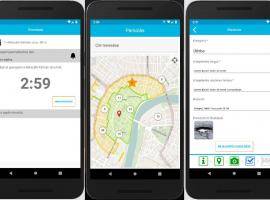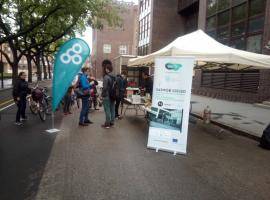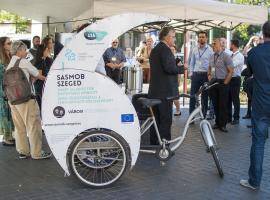Is lockdown caused by Covid-19 pandemic will support or undermine Public Transport services?

What are the consequences of COVID-19 on urban mobility? How big a challenge it was for companies to switch to online work management? What practices HR managers introduced to ease the psychological difficulties and what can be learnt from these experiences? These were some of the questions the Magyar CIVINET network has focused on today during its online forum. The discussion was based on SASMob Urban Innovative Actions project members’ input.
"Lockdown and other introduced measures on social distancing created a giga Living Lab for urban mobility – were the opening words of Sándor Nagy, vice mayor of Szeged – the urban life has changed radically, and we should learn from this experience as much as possible”.
The internet is full of images of large, empty cities, urban spaces without cars, newly introduced bicycle lanes, air quality results not seen in the last 50 years. Experiences of Szeged showed an initial 50% reduction in road traffic, which moved back to 30% during the lockdown weeks of Covid-19 pandemic, however as a paradox, the long-term effects might not be so rosy for sustainable mobility. It could easily happen, that the biggest loser of mobility re-structuring once the pandemic is over, will be public transport providers and not individual car use.
Governmental restrictions on mobility has created an opportunity to validate the mobility monitoring system introduced within the SASMob project. The Software Development Department of the University of Szeged detected the effects of governmental restrictions on mobility, but also the increasing number of own vehicles entering the city centre after the national ban on municipal parking fees made personal mobility more appealing. This single step created 5-20% rise in private car mobility in the city.
On the other hand, passenger traffic on public transport has decreased with 80%, while SASMob sensors on PT vehicles detected 30% reduction in maximum passenger numbers. Public transport operators had to lower the frequency of services, but also had to adjust to social distancing measures, so resulting in lower utilisation levels on PT. The company is running on deficit, only lost revenues from the parking fees creates a deficit of cc. 250 000 EUR/month. Daily financial stability of the public transport provider company had to be ensured by extra funds from the city authority. But it will not work towards more sustainability and self-sufficiency.
SASMob project promised to introduce Telework Deals, to raise home working with 5% within the 7 big employer partners of the partnership. Well, this “promise” has been overfulfilled due to the Covid-19 pandemic. Partners were forced to move workforce to home working, with the many challenges it created, such as ensuring the necessary IT background, in the case of Pick Szeged higher manufacturing demand and coping with the lack of personal contacts.
The variety of employers within SASMob project gave opportunity to compare the different sectors and their readiness for home working. Some employers, such as IT solution companies were better prepared for home working, however bulk teleworking created extra needs even within these companies, such as expanding bandwidth of internet access. Some companies organised bulk laptop purchasing for the children of employees, some needed to refresh security and data management rules, while others supported employees to take home their monitors. Some partners managed to close fully their offices, while others – providing personal services – ensured that employees take turns using the offices.
There was a common thread among employers to give higher esteem for the physical workforce, for those who are supporting the everyday life of the cities, among others, bus drivers, food manufacturing workers, public cleaning employees. Employers are continuously thanks those employees who keep up going to their workplace amidst the overwhelming “stay at home” campaign and ensure that vital infrastructures are working in the city and for the country. They give presence bonuses and other financial benefits for every single day in work.
The psychological negative effects of isolation were felt by many of the employers. Informal communication, coffee breaks within companies cannot be substituted with online meetings. Single employees reported worse status, burnt out more quickly than employees with family obligations and children to be supported with home schooling tasks.
Project partners showed most innovation in managing and counterbalancing social workforce distancing. Some introduced informal coffee hours with colleagues, some employers offer morning yoga classes, organised well-being lectures, monitored the coping potential of employees with weekly surveys, while others created a company App to keep contact with and inform employees on vital workplace matters. From those who were monitored 75-80% experienced the changes without problem.
After 5-6 long weeks working from home, people are getting more and more willing to go back to their offices. It automatically raises the question: What are the take away messages for the after Covid-19 period?
As employers had to make sure not to increase conflict between those who must go to their workplaces and those working from home, as both parties were envying the others, they must make sure that the working conditions are well set, and employees feel equal during their working hours.
Partners all agreed that 100% home working would not work, since it requires so much extra effort to maintain the flow of communication among employees. but 1-2 days of home working for office workers could also be a viable option for companies mostly relying on personal contacts and paper-based administration, such as local authorities. Only one-day home working for all employees in the city could reduce the commuting traffic within the city with 20%. It could also support flattening the morning traffic peak, this effect could be good to save, since it would un-burden PT service providers and the road infrastructure a lot. There are other aspects of office work, which has been tested and could be maintained such as online workforce hiring which could save commuting time and pollution in the city.
The psychological consequences of the Covid-19 virus for public transport could be devastating. Safety concerns on social distancing and national policy actions, such as the banning of parking fees in every community in Hungary could indeed dissuade commuters from the use of public transport. One of SASMob partners, Pick Szeged Zrt which provides vital services in the food industry is especially concerned by the well-being of their employees. They are eager to ensure that their employees get to work safe and give them extra support to be able to drive in to their workplaces.
There is a risk that provisions provided for employees, intended to be temporary would stay with us. The assistance given by employers to use own car is a temporary support during the Covid-19 virus pandemia, however it works in the opposite direction of sustainable mobility. Also, special measures to make public transport “safe” creates a public awareness for PT as unsafe and unhealthy. After taming Covid-19 virus cities will have to boost marketing and investment to restore the trust and confidence of public transport and to promote public transport as a safe and environmentally friendly commuting option. It is important not to build up excessive fears against public transport because we won’t be able to handle the increased motorised traffic in our cities.

